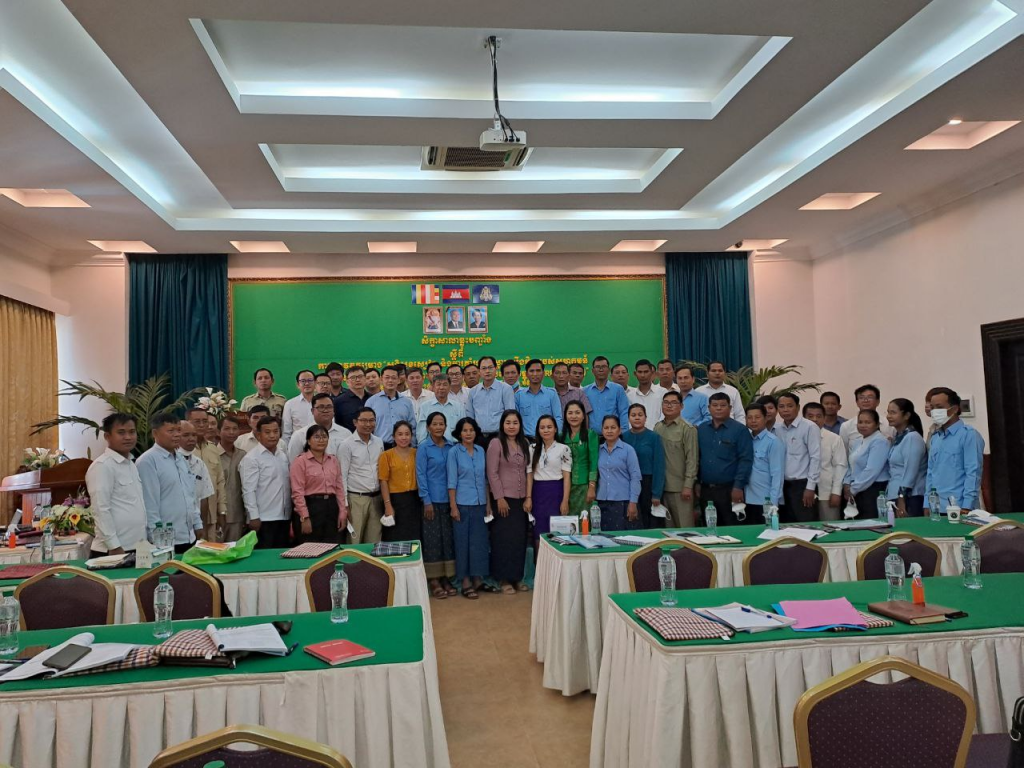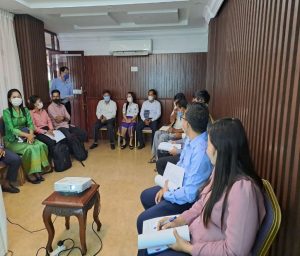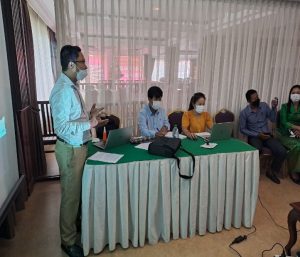The National Committee for Sub-National Democratic Development Secretariat (NCDDS) had collaboration with World Food Program (WFP) to organize a reflection workshop on the implementation of the project “Food Security and Community-based Recovery Support to Flood-affected Community in Cambodia (SRELFOOD 2)”
led by His Excellency Chhun Bunnara, Deputy General Director of the General Department of Administration of the Ministry of Interior and Chairman of the Program Management and Support Division of the NCDDS. This workshop was conducted on 9 September 2022 in Kampot province and participated by the representatives from WFP, Kampong Chhnang, Pursat, Battambang, and Kampong Thom province, targeted districts and communes, technical service contract, development partners, and NGOs with the total of 67 participants.
Objectives of the workshop:
- To reflect on the results of project implementation, lessons learned, experiences, challenges and solutions
- To share lessons, experiences and knowledge of project implementation with projects that respond to climate change, food security and disaster preparedness at the commune level
- To gather opinions and recommendations on the project implementation process, management, and monitoring
- To compile project documents for sharing with stakeholders to use for strategic planning and implementation of the future commune support projects more effectively.
This workshop resulted as following:
- Good practices:
- Established the project management team work with clear roles and responsibilities to support the project activities.
- Provided project implementation orientation and technical support regularly.
- Technical service contractors have capacity and experiences to support to targeted communes in adapted infrastructure project implementation.
- Conducted regularly coordination meeting.
- Citizen participated in the process of infrastructure project implementation was very important to improve the project quality and construction done on time through the feedback from community people.
- Challenges:
- During Covid-19 pandemic in the community, some project activities such meeting, training, project feasibility study and design, and project construction delayed and reduced the participants.
- During project construction, there was much rainfall that caused the project location flooded.
- The project timeframe is short and does not meet the requirements of the infrastructure project which takes longer time to complete the procedures required in the Commune/ Sangkat Project Implementation Guidelines, especially inconsistent with the commune planning time procedures.
- Recommendations:
- Through the deconcentration and decentralization reform; the function implementation of sub-national, commune/ sangkat, commune/sangkat should directly lead the project implementation. Distinctly, provincial and district administrative should provide the technical support and coordination in the project implementation.
- The small-scale adapted infrastructure projects should be implemented within at least 2 years period or more.
- Small-scale infrastructure rehabilitation/construction projects should be selected with a construction gap of over five years.
- The project feasibility study and design and project proposals should be completed by technical service contractor in November.
- The projects types that should be implemented to adapt to climate change in community and response to the needs of communities affected by climate change or disasters such as concrete canal/road construction, dams, reservoirs, and community ponds, and so on.


